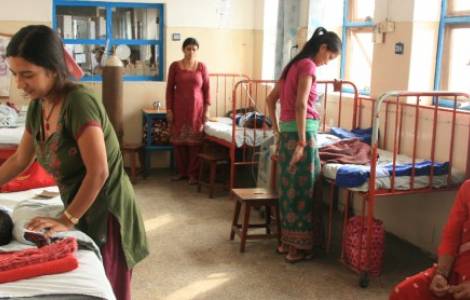
Healthcare executive
New Delhi (Agenzia Fides) - The recent announcement of the federal government on the new health system for 2018 - the largest health insurance project ever proposed in the world - could be "just a big announcement, but not really feasible": says to Agenzia Fides Fr. Mathew Perumpil, MI, Secretary of the Indian Bishops' Conference (CBCI) health care Office.
"Although the media hailed it as a great move in favor of the poor to improve the health of millions of Indians, from a more accurate analysis of the details of the budget and the implementation plan, we understand that it is a big announcement, but that in truth there is not much to hope for a normal citizen", he explains.
It was announced that in the national budget, the health policy will cover more than 500 million Indians and will allocate 500,000 annual rupees (US $ 7.825) of medical coverage for each family.
The plan, according to government estimates, should cost US $ 1.7 billion, between federal and state funds.
The insurance plan aims to cover the poorest Indians - about 29% of Indians live below the poverty line - and the most vulnerable: those who have an irregular job or are unemployed, or are burdened by debts with high interest, as well as paying for one’s health care.
According to observers, it is not at all easy to put this plan into practice. The priest notes: "As a well-known public health specialist believes, T. Sundararaman, the funds allocated in reality will not allow the plan to be applied massively. And recent experiences with similar plans indicate that this will generate an increase in profits for the private healthcare industry. Is it a way to protect the interests of the health and pharmaceutical industry in the name of the poor?", asks Father Perumpil.
India has a bad reputation with regards to public health spending, which is 1% of GDP, one of the lowest levels in the world. Poor assistance is one of the reasons that pushes over 3% of the population below the poverty line. State quality hospitals are few and far between, primary care facilities are scarce and private clinics are prohibitively expensive.
The Indian Church is heavily involved in the field of healthcare in India. The Catholic Health Association of India (CHAI), promoted by the Catholic Episcopal Conference, is the largest non-governmental health organization in India and is committed, according to its motto, to bringing "good health for all". Thanks to CHAI, 21 million people are assisted at a health level. The network has 76,000 healthcare professionals, three universities, five Doctors' colleges, 3500 institutions and over 1,000 nuns who are doctors, mostly engaged in rural areas. "The Church – he observes - more than ever, has the role of being prophetic and creative to help poor Indians access a reasonable and dignified healthcare, in a compassionate way". (SD) (Agenzia Fides, 13/2/2018)